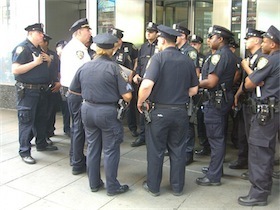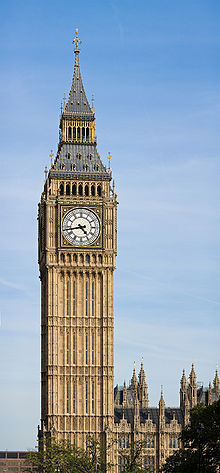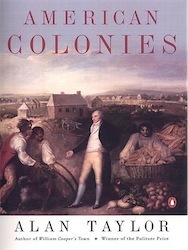Matthew Yglesias's Blog, page 2405
March 1, 2011
"All Of Us"
Pretty much everything about a NIMBY group complaining that a five-story building is a "mammoth" structure that will "block light and air" is ridiculous. But the most ridiculous part is this rhetorical slippage at the end:
The land of the Hine School site belongs to all of us, the citizens and taxpayers of the District of Columbia. The developers were awarded the right to propose how to develop that public land, but we believe that the current concept design is not congruent with, does not harmonize with, and potentially threatens the historic character of Capitol Hill. The massive, block-sized building plan evokes corporate standardization, anonymity and conformity, and, per the changes outlined at the beginning of this letter, we call upon the developers to create an alternative concept more responsive to the neighborhood in which it will sit for decades to come.
There's an enormous contrast here. The Hine School site belongs to all of us not just to a subset of wealthy homeowners on Capitol Hill. I'm trying to write less about this kind of land use issue because I'm hoping to get together a book project on these issues, but I wanted to call attention to the general shape of this controversy. Should planning over the site be dominated by the interests of the city at large (larger tax base, more housing stock, etc.) or by the interests of rich nearby landowners? And is enhancing the ability of rich nearby landowners to maximize the value of their estates really a progressive stand? I'm not immune to the impulse toward greed. I own property. I kinda sorta hope that all real estate decisions in my neighborhood are governed by the principle "what's best for Matt Yglesias' investment." But ultimately I think people in all neighborhoods would benefit from an effort to take a less narrow view of the interests at stake.


Credit Where Due
Ohio's going all-in against public employees rather than pulling a Wisconsin-style "only unions that never back Republicans get the hammer":
"This is going to get passed and people will sit back and say, 'What happened?'" said Mark Horton, a retired firefighter who is treasurer of the Ohio Association of Professional Firefighters. "Once it's done, there's no putting the genie back in the bottle."
Unlike similar legislation in Wisconsin, which exempts police officers and firefighters, the Ohio bill includes them — and is controversial for that reason.
Firefighting policy doesn't seem to be something you hear much about in the political arena.


The Last Doughboy
Frank Buckles, the last American to serve in World War One, died yesterday:

President Obama said in a statement that Mr. Buckles lived "a remarkable life that reminds us of the true meaning of patriotism and our obligations to each other as Americans."
Frail, stooped and hard of hearing but sharp of mind, Mr. Buckles was named grand marshal of the National Memorial Day Parade in Washington in 2007. He was a guest at Arlington National Cemetery on Veterans Day 2007 for a wreath-laying ceremony at the Tomb of the Unknowns. He was honored by Defense Secretary Robert M. Gates at the Pentagon and met with President George W. Bush at the White House in March 2008.
Should someone maybe mention that the war in question was a giant mistake? That's no reflection on Buckles as a person, but I feel like it really deserves to be highlighted in any talk of the first world war.


Military Aid and Terrorism

Eric Neumayer (LSE) and Thomas Plümper (University of Essex) write in The Journal of Peace Research:
Americans are a major target of international terrorism. Yet, terrorists from some countries are much more likely to attack American citizens than terrorists from other countries. Similarly, anti-American terrorism from a specific foreign country is much more prevalent during certain periods than others. This article develops a rational theory of international terrorism, which argues that attacking foreign nationals is of strategic value to terrorists even if they ultimately aim at gaining political influence in their home country. Attacking foreigners is the more attractive to domestic terrorists the more the terrorists' home government depends on military support from the foreign country. Applied to the US case, our theory predicts that more anti-American terrorism emanates from countries that receive more US military aid and arms transfers and in which more American military personnel are stationed, all relative to the country's own military capacity. Estimations from a directed country dyad sample over the period 1978 to 2005 support the predictions of our theory for both terrorist incidents involving Americans and terrorist killings of Americans as dependent variables. These results are robust to a wide range of changes to the empirical research design.
The goal of much of America's terrorgenic policies is to secure our economic interests in the face of oil price shocks, but this holds up to very little cost-benefit scrutiny.


People Like Public Employees

It's always been my understanding that public sector unions' true source of power in political conflicts was not so much their unions as the fact that teachers, cops, firefighters, etc. are held in much higher esteem by the public than politicians or journalists. Given the GOP's newfound enthusiasm for tackling the interests of service providers head on, I thought maybe something had changed about this dynamic, but if it has it doesn't show up in the polling:
Americans oppose weakening the bargaining rights of public employee unions by a margin of nearly two to one: 60 percent to 33 percent. While a slim majority of Republicans favored taking away some bargaining rights, they were outnumbered by large majorities of Democrats and independents who said they opposed weakening them.
Those surveyed said they opposed, 56 percent to 37 percent, cutting the pay or benefits of public employees to reduce deficits, breaking down along similar party lines. A majority of respondents who have no union members living in their households opposed both cuts in pay or benefits and taking away the collective bargaining rights of public employees.
Smells like overreach.


Jobs, Oil, and the Trade Balance

Atrios writes:
I'm someone who is more sanguine than most that high oil prices won't be economic Armageddon. Obviously now would be a particular bad time for oil prices to shoot up, as the economy already sucks, but longer run I don't see it as an economy killer. It will be a negative hit, and production and transportation patterns would change, but I don't think it will fundamentally alter existence.
I sort of disagree. Here's how I see it. The best way for anyone to change their oil consumption is to move. Either to a place where you need to drive less, or else to a place where you don't need oil to heat your home. But in the short term, it's very difficult for households to cut oil consumption by relocating. Consequently, in the short term the demand for oil isn't very elastic. That means that if you brought oil up to $200 a barrel by raising taxes you'd generate a bunch of revenue that could be offset with lower income taxes or what have you. But if oil goes up to $200 a barrel because of supply constraints, then that entails a rise in America's net imports and therefore a drag on GDP. In the long run, I'm sure we can adjust to high oil prices the same as we'd adjust to anything else. But in the short run, the issue with oil isn't just inconvenience to households, it's the impact on the trade balance.
In general, I feel like there's huge denial around the role of petroleum in America's trade deficit. Back in the 1940s and 1950s, US firms had a dominant position in the automobile industry and the USA was a major oil exporter. And we've never switched away from industrial policy oriented around suburbanization, auto dependency, and high per capita levels of oil consumption even though nowadays it's an industrial policy only Venezuela, Saudi Arabia, and Norway could love.


February 28, 2011
Endgame
The house where we used to stay:
— Obama backs increased state flexibility in ACA implementation.
— "Analyzing the Extent and Influence of Occupational Licensing on the Labor Market" (PDF).
Arcade Fire, "Sprawl I (Flatland)".


Life in the United Kingdom

The draft guidance from the Royal College of Obstetricians and Gynaecologists is for all doctors, nurses and counsellors advising women contemplating terminations.
Its first recommendation on "what women need to know" instructs health professionals: "Women should be advised that abortion is generally safer than continuing a pregnancy to term."
Meanwhile, on adoption and gay rights:
A British court has ruled that a Christian couple cannot care for foster children because they disapprove of homosexuality. Judges at London's Royal Courts of Justice ruled that laws protecting gays from discrimination take precedence over the couple's religious beliefs. Eunice and Owen Johns, aged 62 and 65-years old, had previously fostered children in the 1990s, but what one social worker described as their "strong views" on homosexuality raised red flags with authorities in the English city of Derby when they were interviewed in 2007.
The latter story seems to me like it may be overreach, but on the former story there's no question that the new advice is accurate. And yet never in a million years will we be moving to hand it out.


American Colonies

I've quoted Alan Taylor's American Colonies: The Settling of North America a couple of times already, and now that I've finished it I just wanted to recommend it in the strongest possible terms. This is a book that really takes colonial America out of the dusty world of potted elementary school fables and brings it to life. Taylor's technique is to reject the ahistorical process of "knowing" that the United States of America would be the political descendant of the Anglophone colonies in New England and the Chesapeake Bay. Instead, he situations those colonies inside a larger British imperial project that also existed in the West Indies, Nova Scotia, and Hudson's Bay as well as Spanish (New Mexico, Florida, California), French (Louisiana, Ohio River Valley, etc), Dutch (New York), and even Russian (Alaska, Pacific Northwest) colonial projects.
The key theme, however, concerns a process that was distinctive to the Anglophone settlements. This is the supercession of a dynamic of class (placing European nobility above commoners, whether native, European, or African in origin) with one of racial solidarity:
In 1676, Virginia erupted in rebellion when the frustrated servants and freedmen blamed their plight on an insensitive, exploitative, and unqualified class of ruling planters. Led by Nathaniel Bacon, the ill-fated rebellion invited increased crown intervention in Virginia's government. To stem that encroachment and defend their power, the leading Virginians created a more popular mode of politics, which required an alliance between common and great planters. At the same time, the passage of time and increased fortunes permitted the planter elite to perfect a genteel style that commanded greater respect from the common planters. Their alliance became both easier and more essential at the turn of the century, when the great planters switched their labor force from white indentured servants to enslaved Africans. Class differences seemed less threatening as both the common and great planters became obsessed with preserving their newly shared sense of racial superiority over the African slaves. As the historian Edmund S. Morgan has aptly argued, the colonial Virginians developed the American interdependence of elite rule, popular politics, and white racial supremacy. That distinctive combination increasingly set the colonies apart from both their English origins and the colonies of other empires.
An interesting subplot in the book is the tradeoff faced by 17th and 18th Century Englishmen between health and wealth. Due to the greater availability of land, non-deceased New Englander were richer than people in the mother country, and the American South was richer than New England. But the "death by tropical disease" gradient ran in the opposite direction, such that immigration to Virginia was an extremely risky proposition.


Unions, Norms, and Inequality
Read a working paper from Bruce Western and Jake Rosenfeld recently that argues that the decline in union density has been a bigger deal for wage inequality than most economists realize, largely because there's been significant action through the channel of norms. The authors claim the effect can be empirically estimated:
From 1973 to 2007, private sector union membership in the United States declined from 34 to less than 10 percent for men and from 16 to 6 percent among women. Inequality in hourly wages increased by over 40 percent in this same period. We study the effect of deunionization on rising inequality with a variance decomposition that assesses the contribution of the shrinking weight of the union wage distribution to overall wage inequality. We also argue that unions helped institutionalize norms of equity reducing the dispersion of nonunion wages in highly unionized regions and industries. Accounting for the effect of unions on union and nonunion wages suggests that the decline of organized labor explains a fifth to a third of the growth in inequality—an effect comparable to the growing stratification of wages by education.
The impact is much larger for men than for women. Unfortunately, I don't think there's a publicly available copy of the paper yet. In general, I think the impact of norms and conventions on social outcomes is often underrated.


Matthew Yglesias's Blog
- Matthew Yglesias's profile
- 72 followers



